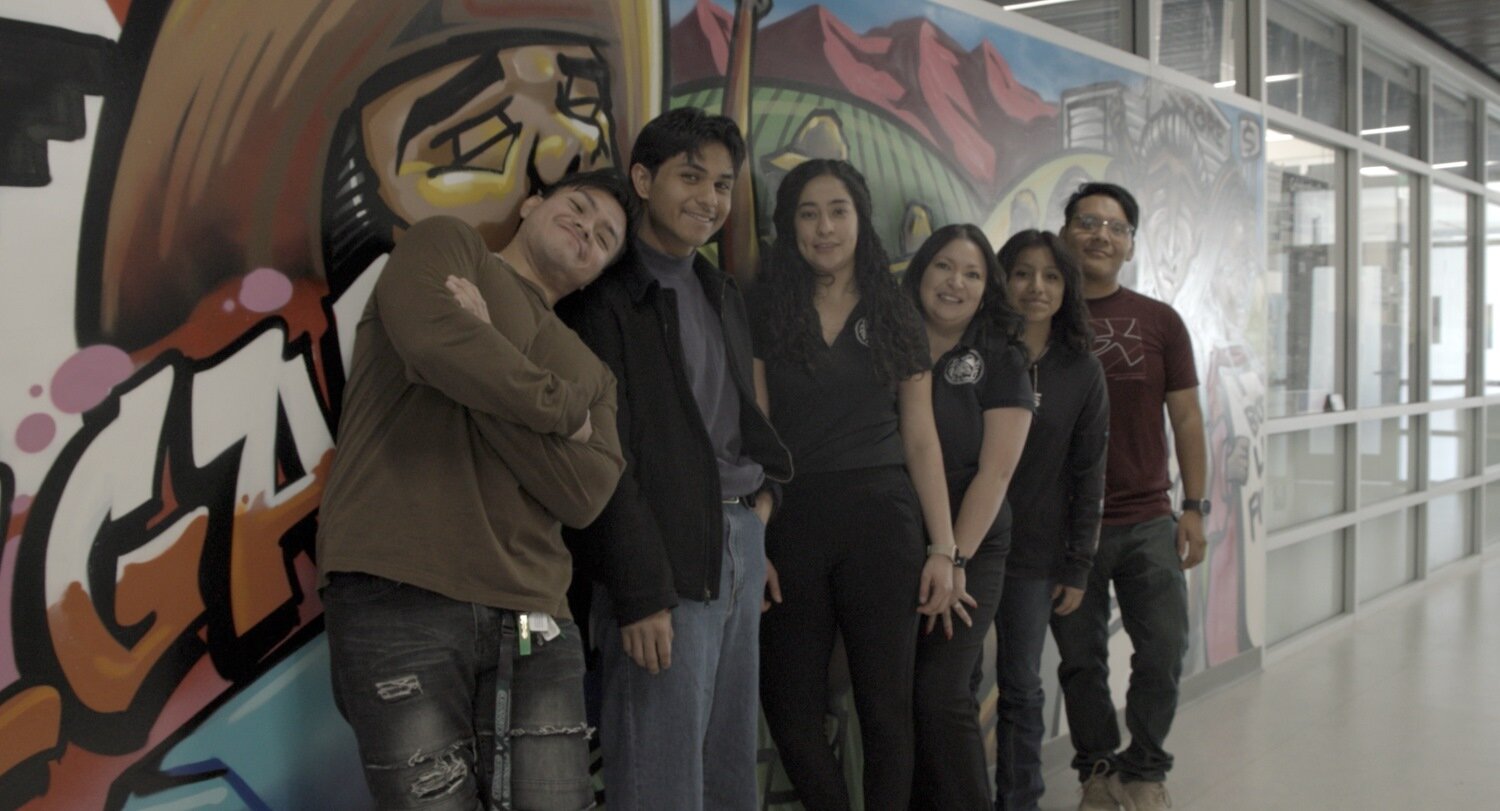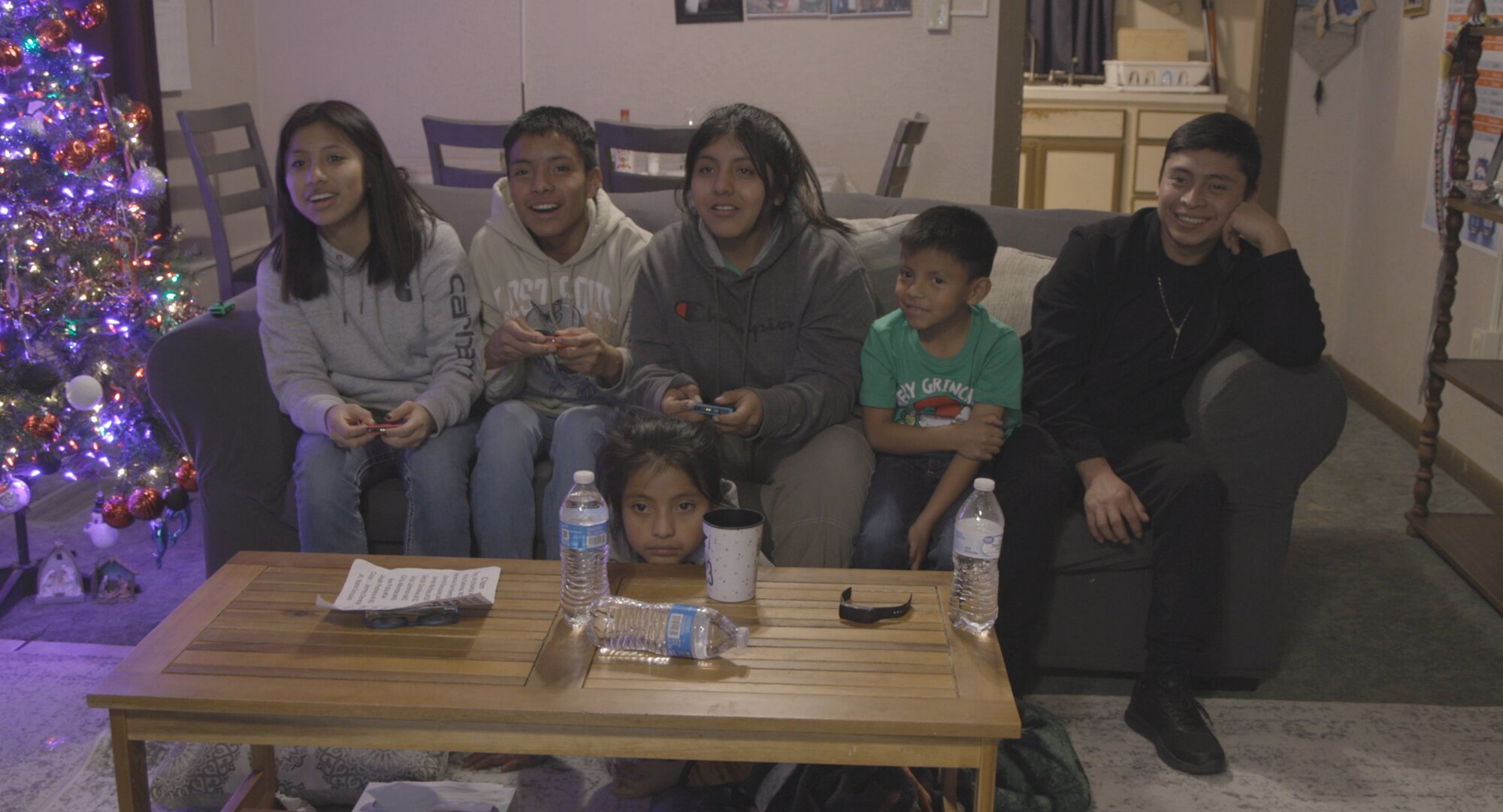A 50-year-old program keeps students from migrant farmworker families in college

ALAMOSA, Colo. — As the oldest of four children, Delia Pablo, 19, began taking care of her siblings at an early age.
"Growing up, I really didn't get to read [stories],” said Delia, who changed diapers, made formula and got her siblings ready for bed by the time she was six years old.
With her parents working long hours at a local mushroom farm, Delia said she was “more reading what I needed to read on the labels for the food I had to microwave.”
Watching Delia struggle as a child, her mother, Eulalia Pablo, wanted something different for her daughter.
“She had to grow up. She didn't grow up a kid. Our kids suffer for us not being around,” Pablo said. “We don't want to see our kids out there [in the fields] … we want better futures and better life for our kids.”
That dream is coming true for her daughter. This year, Delia was the first in her family to graduate high school and enroll in college at Adams State University—a unique opportunity made possible with support from the Children Assistance Migrant Program (CAMP). Funded by the U.S. Department of Education and Office of Migrant Education, CAMP provides financial, academic, social, and emotional support to children of migrant, seasonal farmworkers during their first year of college.
The CAMP program was established in 1972 as part of the Johnson Administration’s War on Poverty. Adams State University was one of the first four inaugural programs to receive funding alongside California State College, Pan American University, and St. Edward's University, and has served more than 300 students on its campus in Alamosa since its launch.
Today a reported 4,000 to 5,000 migrant and seasonal farmworkers are employed in Colorado, according to 2020-2023 data. A large portion of seasonal farmworkers in the San Luis Valley work on potato and lettuce farms. According to the CAMP director at Adams State, Kaylee Gomez-Romero, students and their families also do various types of farm work.
“We see students that work with bees, turkeys, the chile in New Mexico, and some have worked on different ranches with livestock and cattle,” Gomez-Romero said.
Numbers for migrant and seasonal workers and their children are hard to track, so it’s not always easy to know where the needs are. CAMP helps open doors for children like Delia to pursue higher education by covering one full year of tuition along with room and board for undergraduate studies. The program, however, offers more than just financial aid for the cohort of 30 students.
“Community is the biggest benefit of CAMP,” said Gomez-Romero. Students are assigned a peer mentor who is a previous CAMP student to help them navigate college life.
The program also provides tutors, a weekly study hall, assistance with course selection and registration, and career planning. CAMP students also engage in enrichment activities including a ski trip, paint night, community service events, and the Southwest Leadership Conference for CAMP students from Metropolitan State University of Denver, Colorado State University, West Texas A&M University and Arizona State University.

Students, peer mentors and staff of the Children Assistance Migrant Program outside the program office at Adams State University.
Photo: Andrea Kramar, Rocky Mountain PBS
As a first-generation student on campus at Adams State, Gomez-Romero remembers how lost she felt.
“A lot of times your parents aren't as helpful with financial aid, picking out classes or navigating that social part," she said about the non-academic aspects of university life such as joining campus clubs “or studying late at night.”
CAMP aims to provide a support system to help students navigate these elements of the university lifestyle.
According to the Office of Elementary and Secondary Education website, each CAMP student is either a migratory or seasonal farmworker themselves or has at least one immediate family member working in the agricultural industry.
While most identify as Hispanic, like Delia, whose parents are Guatemalan, the program accepts students from diverse backgrounds across the region. Some students are Middle Eastern, Asian or white.
According to National Agricultural Workers Survey, approximately 68% of America’s 2.4 million farmworkers were foreign-born in 2019-2020.
“That’s a huge misconception. Not all migrant farmworkers are immigrants, and not all immigrants are migrant and seasonal farmworkers,” said Gomez-Romero.
A migrant farmworker is defined as an individual who is required to be absent from a permanent place of residence for the purpose of seeking paid agricultural work. By contrast, a seasonal farmworker is employed in farmwork of a seasonal or other temporary nature, according to the Colorado Department of Labor and Employment.
“All of us just want to make our parents proud because of the work they put in for us to be here,” said Javier Rodriguez, another CAMP student at Adams State.
For more than 20 years, Rodriguez’s father worked 11-hour days at a meat processing company in Fort Morgan. At the dinner table each night, Rodriguez watched his father’s hand shake from the repetitive motion of cutting meat at the plant.
“I really admire my dad’s admiration for wanting a better life, to coming over here and for sticking with that job for almost 20 years,” Rodriguez said. “That’s where I get my determination from to keep going and keep pushing. I just want a life to provide back to him and provide for myself so I don’t have to go through what they went through.”

Javier Rodriguez, a first-year undergraduate student at Adams State University, works with the Children Assistance Migrant Program to help navigate the academic experience.
Photo: Andrea Kramar, Rocky Mountain PBS
Another CAMP student, Rafael Pedro Francisco, said, “this program exists for the children of migrant workers because we didn’t have some of the same opportunities that most people do.”
“Other kids might say I have to go to college because my parents want me to,” said Delia. “For us it’s like we want to go college because our parents couldn’t. There’s a big difference in that. Our parents couldn’t, theirs could.”
Even though their home is only a five-minute drive from the dorms at Adams State, Delia’s parents encouraged her to live on campus to establish her independence. She still finds time to help her family and wakes up at 7:00 a.m. before class every day to drive her siblings to school.
“I tell them they need to learn how to read and write. If my sister wants to become a gymnast, I was like, alright, but you still need school,” Delia said. “You want to be able to say, ‘I went to school, I graduated school and I'm becoming someone I've always wanted to become.’”

Delia Pablo relaxes with her siblings and cousin at home in Alamosa.
Photo: Andrea Kramar, Rocky Mountain PBS
Andrea Kramar is the investigative multimedia journalist at RMPBS. andreakramar@rmpbs.org.
Lizzie Mulvey is the executive producer of investigations at RMPBS. lizziemulvey@rmpbs.org.
